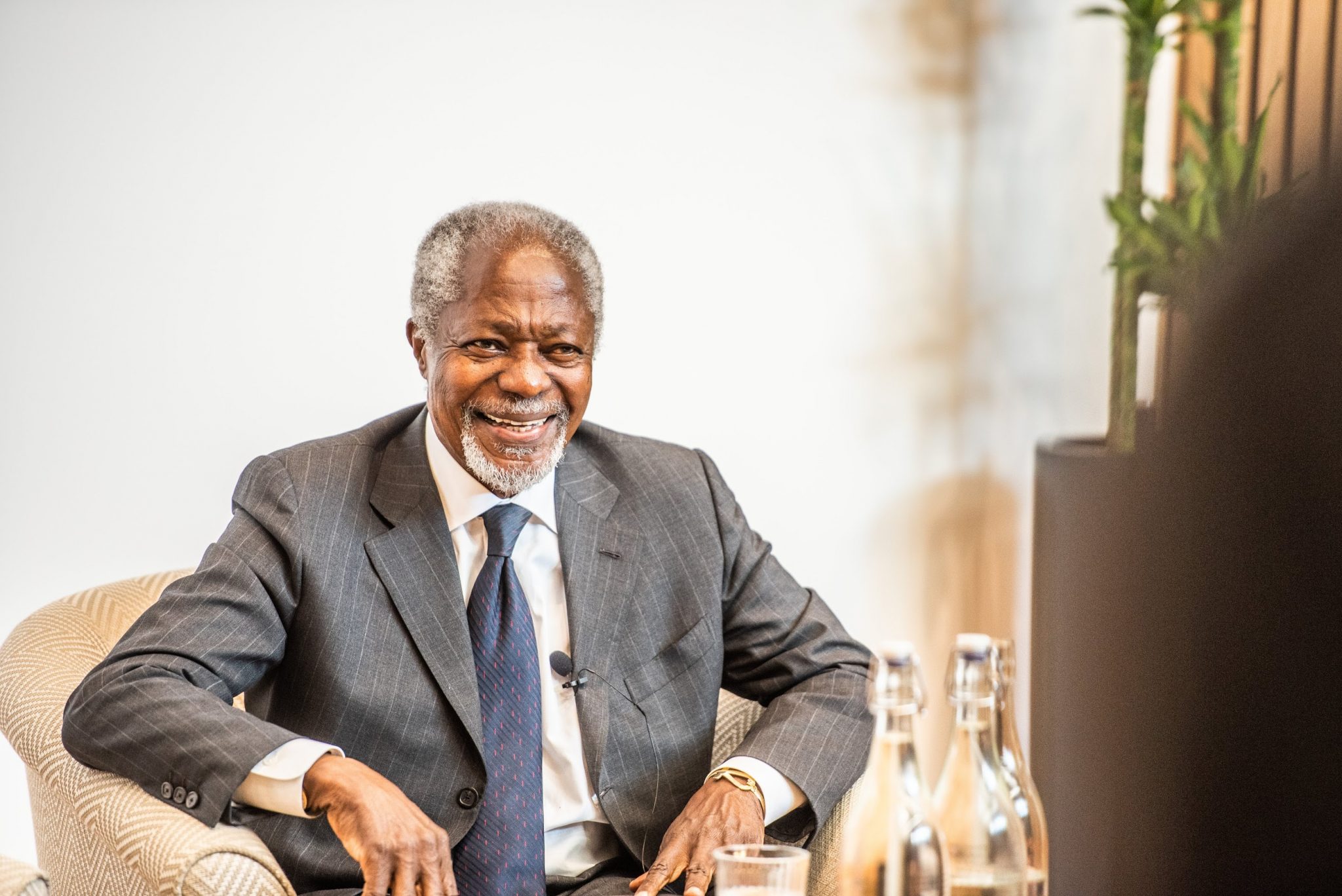Africans sow seeds of green revolution
Arnold Mushongi is a man in a hurry. With his neat executive glasses, clipped diction and appreciation of the private sector, he looks like one of the bright young men and women who are liberalising finance ministries across sub-Saharan Africa and inspiring investor interest in the continent.
But his mission is very different, albeit as important. The 40-year-old Tanzanian is not an economist, nor a politician. He is a crop scientist.
In a remote corner of his homeland, he is seeking to enthuse thousands of smallholders about new seeds, and the attraction of the markets. He is, in short, a foot soldier in an agrarian revolution aimed at transforming food production across the continent – a critical factor if Africa is, as investors increasingly believe, on the brink of a new prosperous era.
Fifty years ago, at the start of the independence era, average crop yields in Africa were as good as, if not better than, across Asia. But in recent decades, as Asian yields have soared, Africa’s have plunged. Last year, sub-Saharan Africa spent about $150bn importing staple foods.
Mr Mushongi’s sponsors, who funded him for two years at a South African university, have a simple if ambitious aim: to follow the example of the “Green Revolution” in Asia in the 1970s, which multiplied crop yields largely through the introduction of new seed types and fertilisers. This year’s famine in east Africa, and the rising food prices on the back of the high price of oil, have heightened the urgency of the quest.
As he strode through a field of hybrid maize brimming with cobs the size of plump aubergines, Mr Mushongi sketched out his vision. “Our national yields are 1.5 tonnes a hectare,” he said. “If we follow the right path they could, in the best conditions, be eight tonnes.”
Kofi Annan, the former UN secretary-general who has made African agriculture, particularly the role of smallholders, the leitmotif of his career since he left the helm of the world body, recognises the challenges. Smallholders have to be coaxed into abandoning ancestral traditions and embracing hybrid seeds and new fertilisers; governments have to be cajoled into relaxing their control over seeds, which they see as national patrimony, and opening up their distribution to the private sector.
Moreover, climate change has intensified the need to speed up the distribution of seeds that are resistant to shifts in temperature and new diseases, while instances of international companies buying up tracts of land have added to Mr Annan’s concern that Africa needs to have greater food security.
Yet he believes that the continent is at last ready for this vision. His Alliance for a Green Revolution in Africa (Agra) has projects in 15 or more countries, with particular focus on Ghana, Tanzania, Mozambique and Mali. The aim is to double the income of 20m smallholders by 2020.
“On average, yields in sub-Saharan Africa are about a quarter of other developing regions and have barely changed in 30 years,” said Mr Annan. “Yet Africa used to feed itself. It used to export food and it can do so again.”
Agra aims to help smallholders use improved seeds and increase productivity, while ensuring there is adequate storage so that bumper crops do not rot. It assists in the establishment of markets for the produce, and seeks to persuade governments to back the initiative.
“Seeds have been the main problem,” Mr Annan explained. “Farmers are using seeds that are 20 years old. They have been locked out of science. Now we are introducing high-yielding, pest-resistant, drought-tolerant varieties. We are also working to liberalise the market. If farmers get a bumper crop and do not have a market for their surplus, they will not repeat the effort the next year.”
Mark Mwandosya, Tanzania’s minister of water, welcomed the initiatives, but said his government remained wary of opening up the marketing of seeds to the private sector. Traditionally, the distribution of seeds to the 70 per cent of Tanzanians who depend on agriculture has been tightly controlled by the state.
“Agriculture is the mainstay of the economy,” he said. “So whoever controls seeds controls agriculture. Earth is god-given and water is god-sent but you need the seeds. Then there is the matter of genetic modification, and that is where we are hesitating. But the perception is changing.”
Tesfai Tecle, a former assistant director-general at the UN’s Rome-based Food and Agriculture Organisation and Mr Annan’s chief agricultural policy adviser, highlighted the challenge of improving infrastructure – in particular transport and storage facilities and opening up regional markets.
“You can deal with climate,” he said. “You can forecast crops and yields. What you need is the right kind of agricultural policies.”
He pointed to a conundrum in the Southern Highlands Region of Tanzania, on the border with Malawi and Zimbabwe, where there have been bumper crop yields but nowhere to sell the surplus. The government has imposed an export ban because of a crop deficit in the north. Yet the internal transport links are too poor to make it viable to move the produce to the area where it is needed.
“The surplus region does not know what to do with the excess,” said Mr Tecle. “It would be very expensive to shift the surplus to the north, whereas they could sell it to neighbouring countries where a profitable market exists. Everyone could benefit from a co-ordinated regional marketing mechanism.”
Mr Annan criss-crosses the continent, urging leaders to back the reforms. He also has advice for companies buying tracts of land. “If a company or government comes in and leases land and produces food for its citizens and ignores the food security in the country concerned, I don’t think it’s a wise or viable model,” he told a Tanzanian audience earlier this year.
“Does the investor think [that] in times of difficulty, people will stand back and allow the food to be exported out of the country? Such deals have to start with food security for the country. If I was an investor I would not put any money into such an approach.”
This article first appeared in The Financial Times on 27 December 2011 and is reproduced here with the permission of the paper.



